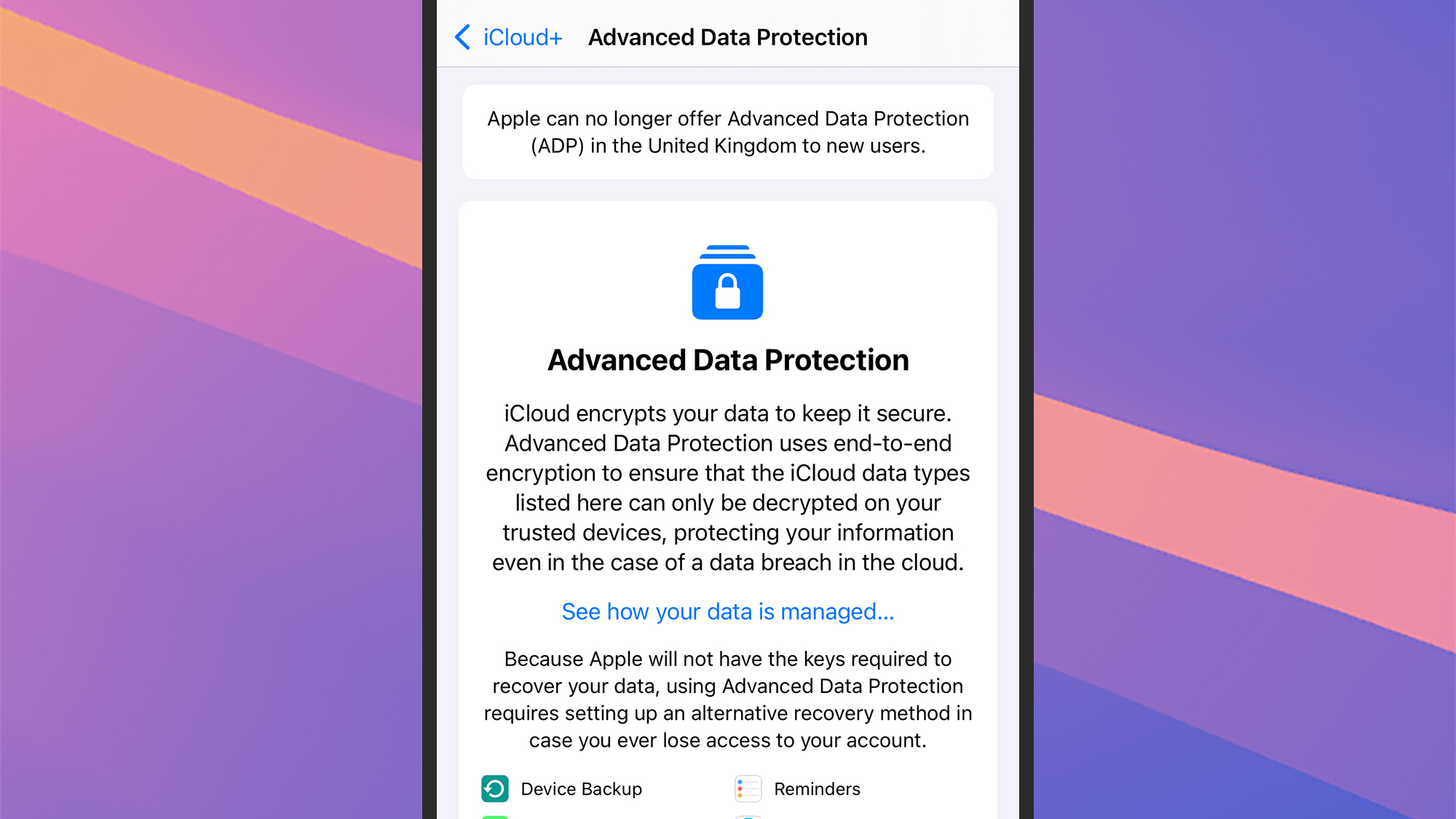Implications of Apple’s Encryption Policy Change in the UK
To ensure your iCloud data enjoys optimal protection, activating Advanced Data Protection (ADP) is essential. However, UK users are facing a significant setback, as Apple has announced it will no longer offer ADP in the country. This decision reportedly stems from a request by the UK government for a backdoor into encrypted iCloud files, potentially sparking global repercussions.
Understanding Advanced Data Protection (ADP)
Advanced Data Protection employs end-to-end encryption, which is regarded as the highest standard for securing data, to safeguard nearly all information stored in iCloud. With ADP activated, unauthorized access to your data becomes virtually impossible. In the absence of this protection, only specific types of information, such as passwords, payment details, Messages in iCloud, and health-related data, receive this level of security. Notably, this sensitive data remains impenetrable to everyone, including Apple and intelligence officials in the UK.
In contrast, without ADP, some of your iCloud data—like iCloud Drive, Photos, and Notes—benefits from weaker encryption. While this level of security is effective in deterring most hackers and safeguarding your information, it remains accessible to Apple personnel, as well as vital governmental and law enforcement bodies.
Governments around the world, along with Apple, claim to have rigorous procedures to control access to encrypted data. However, access remains a possibility. When ADP is active, this concern evaporates since law enforcement, whether from the FBI or MI5, would be unable to retrieve any files even with demands.
Recently, The Washington Post revealed that UK officials sought covert backdoor access to Apple’s fully encrypted data files, allegedly under the Investigatory Powers Act of 2016. This legislation permits the security services wide-ranging access to user data when investigating criminal matters, such as combating terrorism and preventing child exploitation.
This ongoing conflict has persisted for years, with governments and law enforcement insisting on having keys to unlock user data to prevent criminal activities. On the other hand, privacy advocates and tech firms like Apple assert that there is no secure method to confine a backdoor exclusively to “good actors,” as delineating between good and bad is often impractical.
Apple’s Withdrawal from the UK and Its Global Repercussions

Credit: DailyHackly
Apple has consistently maintained a stance against providing backdoor access to its encrypted data, leading to the withdrawal of ADP as the only viable solution. Consequently, new users in the UK can no longer activate this feature, and existing users may need to disable it in the future, although an exact timeline hasn’t been specified by Apple.
“Apple can no longer provide Advanced Data Protection (ADP) to new users in the UK, and current UK users will eventually be required to deactivate this security feature,” stated Apple representative Julien Trosdorf in a comment to The Verge. “We are deeply disappointed that our customers in the UK will no longer have access to the protections afforded by ADP in light of increasing data breaches and privacy threats.”
Given the sensitive nature of this topic, UK government officials have refrained from commenting on the reports, and Apple similarly avoids any direct mention, as disclosing a request made under the Investigatory Powers Act is a criminal offense.
The stance of other tech giants, such as Google and Meta, remains unclear. It is likely that the UK government has made similar demands of these companies, but specific details have not surfaced, and those involved cannot disclose information. Both Google and Meta have, like Apple, opposed encryption backdoors.
This situation poses a headache for individuals in the UK, but the repercussions extend worldwide. With the internet blurring national boundaries, UK authorities could potentially access end-to-end encrypted data from users globally via this backdoor, which now seems to be off the table.
Having enabled ADP, concerns linger about the imminent necessity of deactivating it, which would leave some iCloud data vulnerable to unauthorized access yet again. This scenario often results in the general populace suffering the consequences while debates over encryption backdoors continue to unfold.












